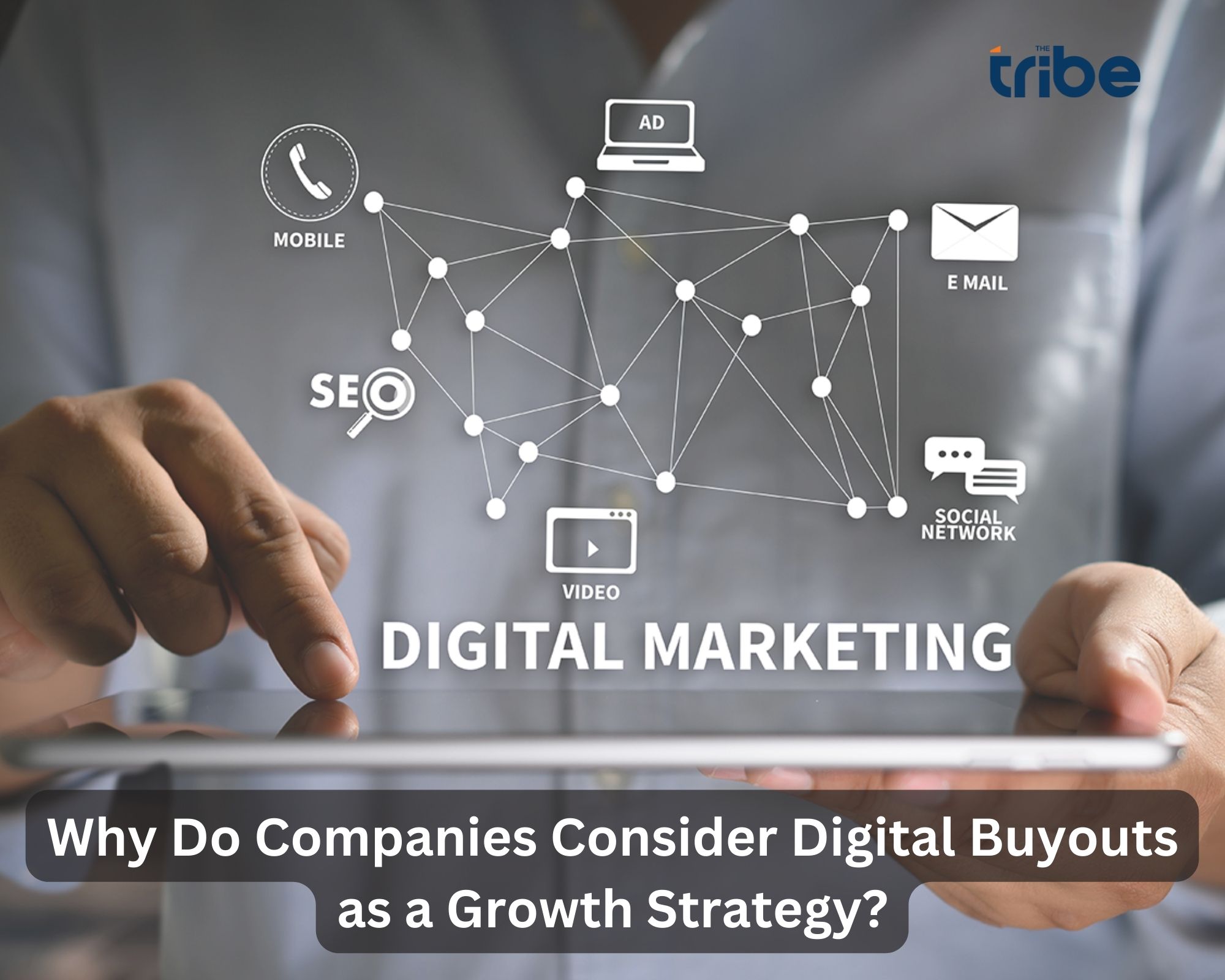
Digital Buyout: A Strategic Approach to Business Growth
In today’s rapidly evolving business landscape, companies are constantly seeking innovative ways to expand and grow. One strategy that has gained significant traction in recent years is digital buyouts. This approach involves acquiring digital assets, such as companies, platforms, or technologies, to leverage their capabilities and integrate them into the acquiring company’s existing operations. In this blog, we will explore the concept of digital buyouts, why companies consider them as a growth strategy, the benefits they offer, and how to align them with overall business objectives. We will also delve into some real-world case studies of successful digital buyouts to illustrate their potential impact.
What is a Digital Buyout?
Why Do Companies Consider Digital Buyouts as a Growth Strategy?
Accelerated Growth: Digital acquisitions can lead to rapid expansion and increased revenue.
Access to Technology: Acquiring digital assets provides access to advanced technologies and capabilities.
Market Expansion: It allows companies to enter new markets quickly.
Competitive Advantage: Acquiring key players strengthens market position and disrupts competitors.
Diversification: Digital buyouts diversify a company’s portfolio, reducing risk and dependency on one market or product.

Benefits of Digital Buyouts
Immediate Impact: Unlike organic growth strategies, digital buyouts deliver results more quickly since the acquired assets are already developed and operational.
Reduced Risk: Successful digital buyouts can minimize the risks associated with entering new markets or developing new technologies independently.
Enhanced Expertise: Acquiring digital companies often brings new skills and expertise into the organization, fostering a culture of innovation.
Scalability: Digital acquisitions can easily be scaled to accommodate growing customer demands, making them a flexible growth strategy.
Aligning Digital Buyouts with Overall Business Objectives
Aligning digital buyouts with overall business objectives involves:
Target Selection: Choosing digital assets that align with strategic goals.
Strategic Fit: Assessing compatibility in culture, vision, and how the acquisition complements the existing business.
Effective Integration: Developing a well-planned integration strategy to maximize benefits and minimize disruptions.

Business Growth Strategies for Small Businesses
Small businesses often face resource constraints and limited access to cutting-edge technology. Digital buyouts can be a game-changer for small businesses looking to grow.
Growth Strategies for E-commerce Businesses
E-commerce is a fiercely competitive space, with constantly evolving customer preferences and technological advancements. To thrive in this environment, e-commerce businesses need to adopt growth strategies that keep them ahead of the curve.
Business Development Strategy for Startups
Startups are known for their agility and innovative spirit. However, they often face challenges in scaling their operations and gaining market traction. Digital buyouts can be a strategic business development approach for startups.
Growth Strategies for B2B Businesses
B2B businesses operate in a complex ecosystem with unique challenges. Digital buyouts can be a powerful tool in the B2B sector, enabling companies to acquire specialized technologies or services that can complement their existing offerings.
B2B Business Development Strategies
In the realm of business-to-business (B2B) relationships, digital buyouts can serve as a key business development strategy. By acquiring digital assets that align with their core business, B2B companies can enhance their value proposition to clients.
Growth Hacking Strategies for E-commerce
In the highly competitive world of e-commerce, growth hacking strategies are essential to stand out from the crowd. Digital buyouts can be a form of growth hacking by providing instant access to new customer segments or unique technologies.
At Tribe Solutions, we understand the complexities of digital buyouts and can assist you in navigating this dynamic landscape. Our expertise in due diligence, strategic planning, and post-acquisition integration can help you make informed decisions and achieve your growth objectives.
Case Studies of Successful Digital Buyouts
Let’s take a look at some prominent examples of successful digital buyouts:
Google’s Acquisition of YouTube
Google’s acquisition of YouTube in 2006 for $1.65 billion transformed the company into a dominant player in the online video space. YouTube’s user-generated content and advertising capabilities complemented Google’s search and advertising business, creating a powerful synergy.
Facebook’s Acquisition of Instagram
In 2012, Facebook acquired Instagram for $1 billion. This move allowed Facebook to tap into the rapidly growing mobile photo-sharing market and expand its user base significantly. Instagram’s independent operation also preserved its unique identity.
Amazon’s Acquisition of Twitch
Amazon acquired Twitch, a live streaming platform for gamers, for approximately $970 million in 2014. This acquisition strengthened Amazon’s position in the gaming and live streaming industries and integrated seamlessly with its broader entertainment and e-commerce ecosystem.
Conclusion
Digital buyouts are a strategic approach to business growth that offers numerous advantages, including access to innovation, market expansion, and diversification. To make the most of this strategy, companies should carefully align digital acquisitions with their overall business objectives, perform due diligence, and ensure a smooth integration process. As demonstrated by case studies like Google’s acquisition of YouTube, Facebook’s acquisition of Instagram, and Amazon’s acquisition of Twitch, successful digital buyouts can be a game-changer in the corporate world. Embracing this strategy can position companies for sustained growth and competitiveness in the digital age.
